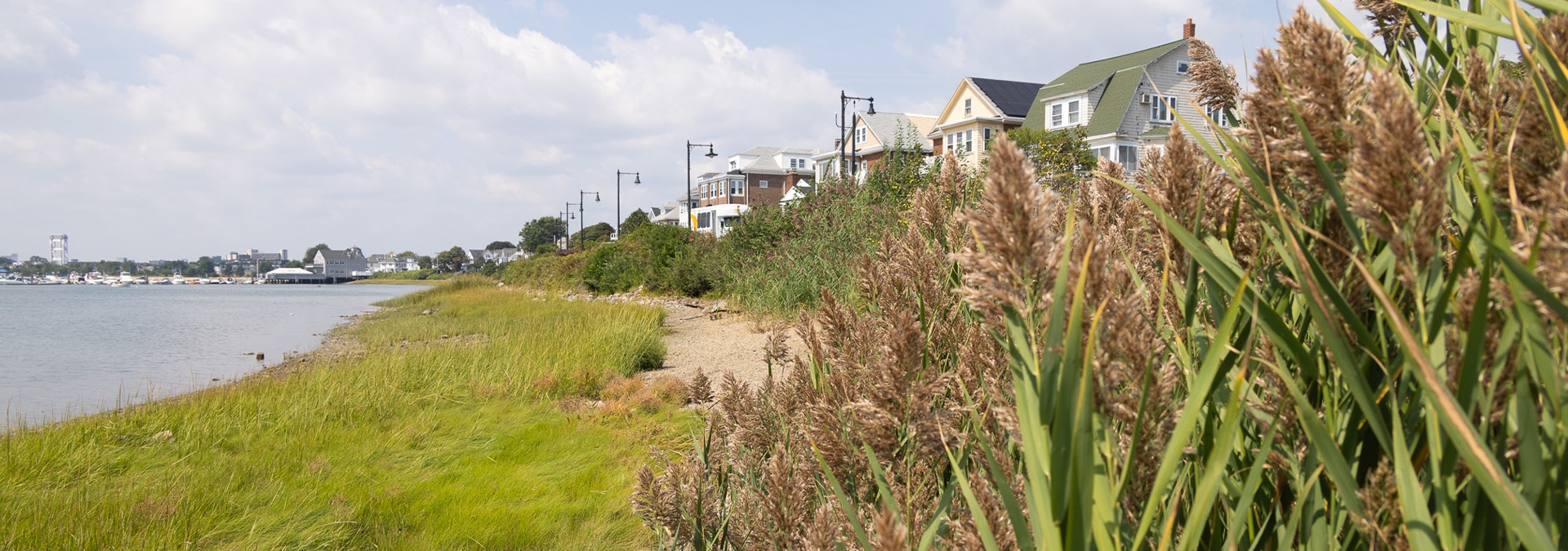
Sustainability
Resiliency
Massport is committed to ensuring its ability to withstand the impacts of climate change and maintain continuity of operations.
Resiliency is defined as the ability of a system to prepare for disruptive events, recover within a reasonable time frame with minimal damage, and sometimes emerge even stronger.
In New England, climate change is causing significant impacts, such as rising sea levels, extreme storm events, heavy precipitation, coastal flooding, and extreme heat. As a result, Massport protects critical infrastructure and surrounding communities to ensure it can maintain its role as an essential economic engine for the region and protect the quality of life of our neighboring communities.
In 2013, Massport launched a comprehensive resiliency initiative to maximize business continuity. There have been numerous accomplishments since then, such as the installation of flood protection at all Tier 1 critical infrastructure sites and the development and implementation of robust operational plans. Massport has been collaborating with regional resiliency efforts including MassResiliency, US Army Corp. of Engineers and numerous City of Boston initiatives to protect surrounding communities. Massport’s efforts are guided by the following goals:
- Improve resiliency for overall infrastructure and operations.
- Restore operations during and after disruptive events in a safe and economically viable time frame.
- Create robust feedback loops that allow new solutions as conditions change.
- Inform operations and policy and implement design/build decisions by applying sound scientific research and principles that consider threats, vulnerabilities, and cost-benefit calculations.
- Become a knowledge-sharing exemplar of a forward-thinking, resilient port authority.
- Work with key influencers and decision makers to strengthen understanding of the human, national, and economic security implications of extreme weather, changing climate, and anthropogenic threats to Massport’s facilities and the region.
Examples of Massport’s ongoing efforts include:
- Conduct long-term strategic assessments of Massport’s resilience capability to identify risks and relevant climate impacts, assess and address vulnerabilities, and appropriately adjust adaptation plans.
- Plan for the longevity of capital investments and critical infrastructure through sustainable design and climate preparedness. This includes executing infrastructure-specific designs and specifications and ensuring projects comply with standards outlined in Massport’s Floodproofing Design Guide.
- Provide tools and educational opportunities to staff, tenants, and other key stakeholders to enhance understanding of climate change and to facilitate management oversight and response to storm events impacting Massport infrastructure.
- Conduct strategic workshops with key stakeholders to review and continuously improve its flood operations plans.
- Conduct training exercises and test deployment of temporary flood barriers at critical facilities to support climate readiness.
- Incorporate resiliency into Massport’s Stormwater Pollution Prevention Plan for Boston Logan tenants, as well as its environmental management systems.
- Collaborate with internal and external partners to prepare for the effects of climate change; this includes involvement with regional and local resiliency planning efforts, collaboration on research projects, sharing best practices, and more.